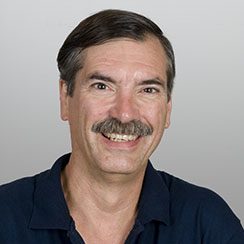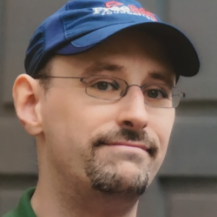June 10, 2022
On May 31, 2022 The FreeBSD Foundation held its Annual Board Meeting. An important part of the meeting includes electing Board Officers and Directors for the following 12 month period. We’re pleased to announce the FreeBSD Foundation 2022-2023 Board includes:
President, Treasurer, and Founder: Justin T. Gibbs
Vice President: Andrew Wafaa
Secretary: Kevin Bowling
Director: Cat Allman
Director: Hiroki Sato
Director: Robert N.M. Watson
Assistant Secretary: Deb Goodkin
The board and staff also said goodbye to two long-serving board members,Kirk McKusick and Benedict Reuschling. We are so grateful for their hard work and dedication supporting the FreeBSD Foundation, Project and Community. We asked each outgoing board member to talk about their time on the Foundation Board. Read more about how Kirk and Benedict helped the Foundation and Project grow and prosper.
Kirk McKusick

Why did you decide to join the FreeBSD Foundation Board of Directors?
I felt that it was important to provide the FreeBSD Project with a stable and long-term support structure and that the FreeBSD Foundation could be grown to provide that support. I am happy to say that the foundation is now in a position to not only provide the needed support but has also managed to expand into support advocacy, system enhancement, and documentation.
How long did you serve on the board?
I served for nine years.
Why did you decide to step down?
I feel that eight years is about the right amount of time to spend on a board. Long enough to make a useful contribution but then stepping aside to let on new people with fresh ideas.
What was your great accomplishment as a Foundation Board member?
Helping the foundation to grow from a one woman show to a ten person organization.
What do you hope to see for the future of the Foundation and Project?
FreeBSD use continues to grow and eventually replaces Linux as Linux collapses from its unchecked and bloated growth.
“We were so fortunate to have Kirk on our board for 10 years”, said Deb Goodkin, FreeBSD Foundation Executive Director. “He brought his many years of experience with FreeBSD, board governance, and finances to provide invaluable guidance in helping to shape where the Foundation is today.”
Benedict Reuschling

Why did you decide to join the FreeBSD Foundation Board of Directors?
I was asked by George Neville-Neil to join the board after he gave me a brief overview of what it would involve. I think I was both interested in the challenge to grow personally and also serve the FreeBSD Project more than I already did with my commit bit. I’ve never been in such a high position of leadership before and learned a lot about how a US non-profit works and is run from the other board members. The experiences I gained about technology, people, and management are very valuable to me and I cherish the personal connections I’ve built with the Foundation members (both board and employees) over the years.
How long did you serve on the board?
I joined the FreeBSD Foundation Board as a director in June 2015 (annual board meeting during BSDCan) and was elected vice-president in the following year. I served in that role until May 2022.
Why did you decide to step down?
I think I wanted a more direct involvement in the project steering again. As strangely as it sounds, serving on core has been stressful at times, but also very rewarding in the goals that we achieved. While serving on the Foundation board was equally rewarding, the feedback on core was more direct (whether good or bad) and did not take too long to reach me. The board serves mainly a long term function, which is fine and useful to have. It also requires a lot of patience over the long-term goals.
To prevent burning out and get more direct interaction with our community again, I decided to run for core.12. I’m stepping down after being elected for the next two year term to avoid conflicts of interest between the two parties. I may rejoin the Foundation board after that time, which hopefully serves both me and the Foundation. I hope that my replacement will bring fresh ideas and energy into the board and steer the Foundation into a different direction than I was able to.
What was your great accomplishment as a Foundation Board member?
I think being considered and voted into the Foundation board itself has been an accomplishment in itself. I think it must have been my involvement in the community thus far and the regional access within Europe that I have on a mostly North America-based board. I represented the Foundation and FreeBSD project at various events, gave talks and talked to people at booths, handing out marketing material. That way, I could get a better understanding what it is that people want from FreeBSD and how it helps them solve their computing needs.
I also talked to some companies and made initial connections to german-speaking company representatives that showed up at MeetBSD or even BSDCan. That helped them build a bridge into the project by having someone to talk to and make introductions. Some of these companies would later become donors to the Foundation and members of the community. This was very satisfying for me. I will continue to do so outside of the Foundation and relay folks to it when needed.
What do you hope to see for the future of the Foundation and Project?
I hope that FreeBSD stays a valid option in a highly Linux-dominated market. Having alternatives available that are on the same technological level and easy to use, approach for newcomers and access are important ways to retain users and gain new ones. The Foundation plays an important role in managing the financial, legal, educational, technical, and marketing side of the FreeBSD open source project. This helps the developers to focus on doing what they do best while offloading most of the seemingly boring paperwork onto the Foundation.
There are tremendous opportunities to grow for FreeBSD, but it must happen without too much split in the community. Otherwise, we end up fragmented like Linux pulling the community apart in different directions. The flexibility of use that FreeBSD offers, along with the company-friendly license are good points for FreeBSD. We need to make sure to stay on the technical edge, even though some of those solutions that Linux adopts may seem strange to us. Our engineering has been slow but considered, with a bigger focus on code quality. What we’re missing is the same amount of developers that Linux has attracted, and we need to do more to get more people involved in all parts of the project. This avoids burnout and ensures that the Project is still alive long after the current folks have left (for whatever reason).
The Foundation can do a lot more than the project to reach out to companies and universities to attract talent and donations that sustain the development of FreeBSD as a whole. My hope is that we grow in a sustainable way, have good ideas about how to manage the amount of people, spend the donor-money wisely, and provide an overall good experience for everyone that gets in contact with FreeBSD and the Foundation.
“I’m grateful for the contributions Benedict made to the FF and Project as our Vice President. His passion for FreeBSD, spilled over into many of the areas of the Project that we supported,” Deb went on to share. “Not only did the board benefit from his contributions to governing the FF, but the Project benefited greatly from the events he organized and planned in his region. Though, I’m sorry to see him leave our board, I’m excited to see him move back into a Project leadership role by being elected to Core 12.”
The Foundation Team sends out a heartfelt thank you to both of these individuals for everything they’ve done for us and look forward to working with them again in the future.
